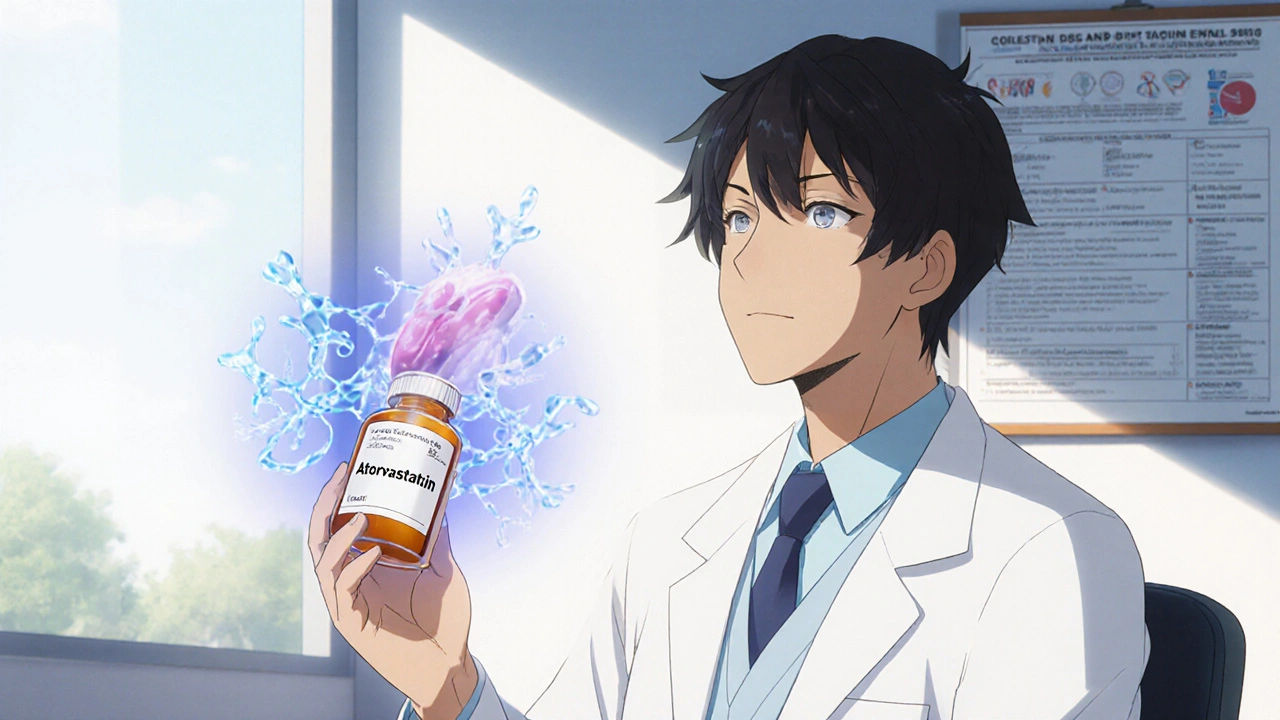Statin Side Effects: What You Need to Know Before Taking Cholesterol Medication
When you take a statin, a class of drugs prescribed to lower LDL cholesterol and reduce heart attack risk. Also known as HMG-CoA reductase inhibitors, these medications are among the most prescribed in the UK—yet many people stop taking them because of side effects they didn’t expect. The truth? Not every side effect is serious, and not every symptom you feel is caused by the statin. But ignoring real warning signs can be dangerous.
One of the most common complaints is muscle pain, a dull ache or weakness that often starts in the thighs or shoulders. This isn’t just "feeling sore"—if it’s new, persistent, and gets worse with movement, it could be statin-related myopathy. A 2022 study in the British Journal of General Practice found that about 1 in 10 people on statins report muscle discomfort, but only a small fraction have actual muscle damage. Still, if you notice dark urine or extreme fatigue along with the pain, get it checked. Your liver and kidneys can also be affected. Liver enzyme changes, a mild, often temporary rise in liver markers. This doesn’t mean liver damage, but it’s why your doctor orders blood tests every few months. Another less-known issue is blood sugar changes, a slight increase in fasting glucose levels that may raise diabetes risk in predisposed individuals. It’s not common, but if you’re prediabetic or overweight, this matters. And yes, some people report brain fog or memory lapses—though large studies haven’t confirmed a direct link, the anecdotal reports are widespread enough that doctors now ask about it.
What’s missing from most patient conversations? Statin side effects aren’t one-size-fits-all. Your age, gender, other meds, and even your genetics play a role. A 70-year-old woman on a high dose of simvastatin has a very different risk profile than a 45-year-old man on low-dose rosuvastatin. And here’s the key: many side effects fade after a few weeks as your body adjusts. But if they don’t, or they get worse, switching to another statin or trying a non-statin option like ezetimibe or PCSK9 inhibitors might be smarter than quitting cold turkey.
You’ll find real stories and comparisons below—from people who swapped atorvastatin for pravastatin and felt better, to those who managed muscle pain with CoQ10 and exercise, to others who discovered their symptoms weren’t from the statin at all. This isn’t about scaring you off cholesterol meds. It’s about helping you spot the real red flags, understand what’s normal, and know when to talk to your doctor instead of just stopping the pill.


